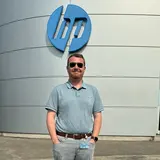Internship Spotlight: Anna Eapen ’23, REDF
Anna Eapen ’23 shared what she worked on during the summer at her internship with REDF.
What did you do this summer? In this series, Laurie Toth asked rising second-year MBA students to check in from their summer internships, where they applied the lessons of their first year at Yale SOM.
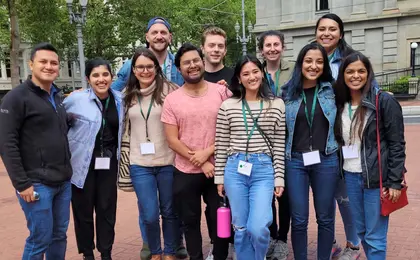
Anna Eapen ’23
Internship: REDF—San Francisco, California, and Nashville, Tennessee
Hometown: Roanoke, Virginia
Pronouns: she/her/hers
Clubs and affiliations: Economic Development Club (co-chair), Consulting Club, Impact Investing Club, Education Club, Internship Fund, Consortium
Favorite SOM class: Global Social Entrepreneurship (Kenya)
Favorite SOM professor: Amy Wrzesniewski
Favorite New Haven eatery: Tie between September in Bangkok and Tavern on State
Favorite thing you do in New Haven or SOM to unwind: Hosting lazy weekend brunches for my friends.
This summer, I joined the venture philanthropy fund REDF as a Farber Fellow. REDF invests in employment social enterprises—businesses achieving transformative social impact—providing jobs, training, and support to people breaking through barriers to employment. Farber Fellows are MBA students who are embedded into one of these investees to work on a mission-critical project. For my summer, I worked at Project Return, one of REDF's nonprofit investees located in Nashville that provides wraparound support to help formerly incarcerated individuals gain meaningful employment and get reintegrated into their communities.
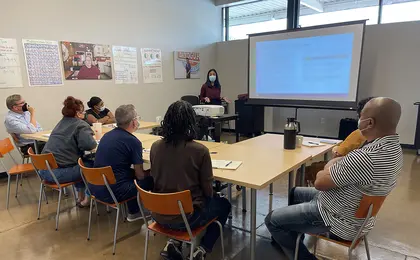
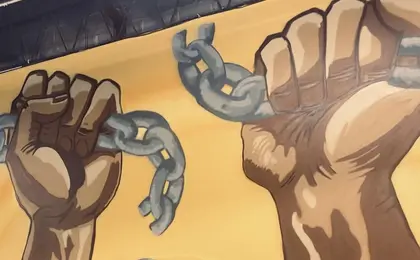
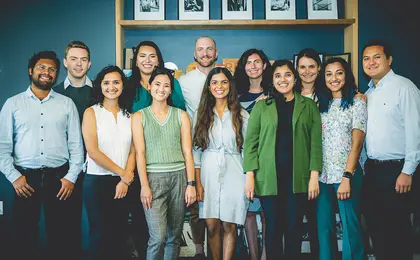


With three existing social enterprises and a second office recently opened in East Tennessee, Project Return’s leadership has had their sights set on their next big endeavor: launching a fourth social enterprise. Being situated in a food desert in one of the most impoverished parts of Nashville, they had started looking into doing something food-related. To guide Project Return’s next major business decision, I built out my project to include conducting a competitive analysis of the food industry, undertaking a feasibility assessment of different potential social enterprise business lines, and creating a market-entry strategy for what I recommended as the best options.
I had heard of REDF while talking to students during the MBA application process and was excited by the opportunity to fully own a social impact consulting project from start to finish. My previous experience in policy consulting, as well as my semester working with a socially-focused organization in SOM’s Global Social Entrepreneurship (GSE) Kenya course, prepared me well. I spent my summer learning from REDF staff, interviewing social enterprise founders around the U.S., and structuring out my own analyses. GSE taught me how to simultaneously weigh business and social goals for new enterprises, which proved useful as I compared different food business lines’ potential for revenue and community impact.
The most important education I received during my internship, however, was from the innovative work of Project Return staff in continuously improving the quality of services they provide and the social enterprises they run. In recent years, Nashville has been home to one of the zip codes with the highest incarceration rate in America. A key component of addressing mass incarceration is ensuring that those who have been impacted by the justice system have a chance to succeed once they get out. In a state where half of re-entering citizens recidivate (that is, end up back in prison, often due to a sheer lack of support), Project Return fills a critical gap—providing real tools and employment opportunities that allow re-entering citizens to build purposeful lives. Their efforts and emphasis on meaningful employment reminded me of several Workforce course lectures where we discussed the importance of intentionality in job design and quality for employees.
Though the 13 of us fellows were scattered around the U.S. during the summer, we had a lot of bonding time through REDF’s community retreat in Portland, closing presentations at REDF headquarters in San Francisco, and plenty of virtual learning sessions and happy hours. We also had the opportunity to interact with REDF’s CEO and dozens of social impact leaders throughout the U.S. As someone hoping to eventually work in the economic and workforce development space, I am grateful to walk away from my summer feeling inspired by these leaders and organizations working effectively to create lasting change.



